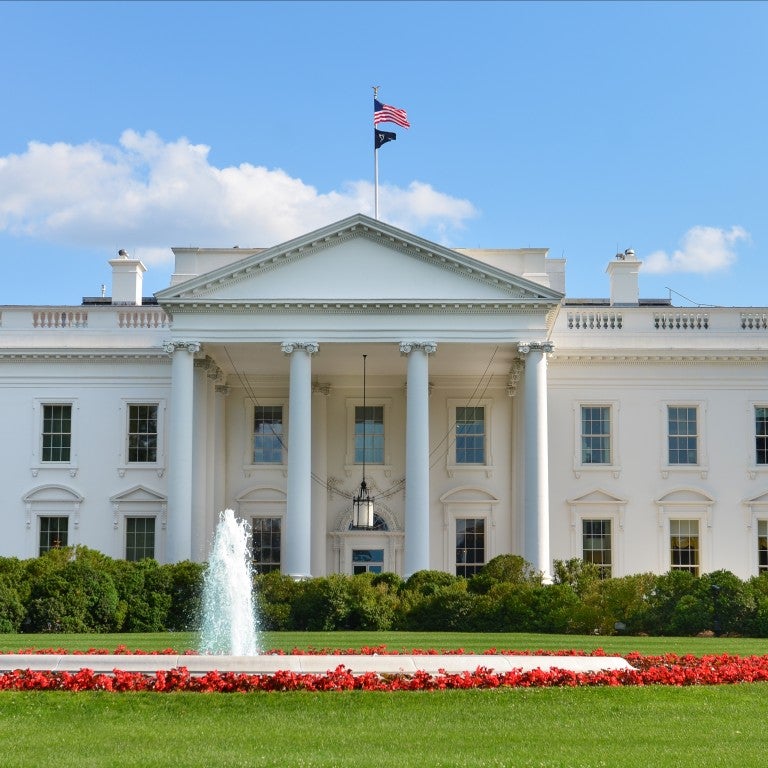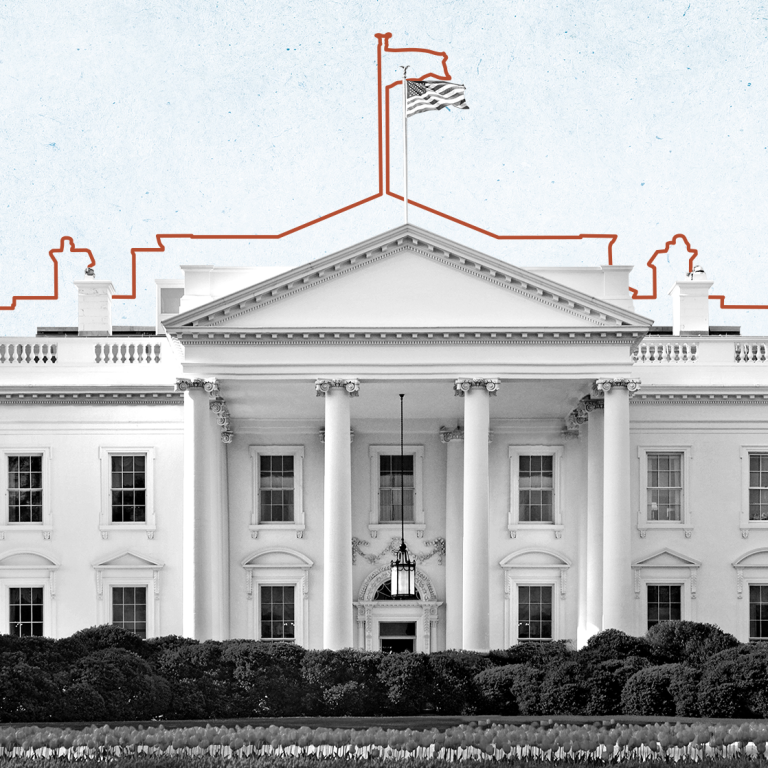June 30, 2023
In June in Tel Aviv, AJC hosted, and awarded, seven experts from around the world devoted to combating antisemitism. They shared their valuable insights with the AJC Global Forum 2023 audience at the Leonard Greenberg Forum for Domestic Policy Issues.
The event took place less than a month after the Biden administration released its U.S. National Strategy to Counter Antisemitism. The Strategy includes dozens of AJC’s recommendations and was informed by an AJC-convened meeting at the White House featuring these antisemitism envoys from around the world.
Here are seven key takeaways from their discussion at AJC Global Forum.
1. If you care about the future of democracy, then you should care about antisemitism.
Europe made fighting antisemitism a priority after a series of fatal attacks on Jewish communities there. But the catalyst for developing a concrete plan, according to the European Commission’s Katharina von Schnurbein, followed the shooting at Charlie Hebdo, a French satirical magazine in Paris, where in January 2015 gunmen murdered 12 people and injured 11 others, and the attack on the Hyper Cacher kosher supermarket two days later that left four dead and nine injured. These massacres highlighted antisemitism’s danger to both the Jewish community and democratic societies at large, she said.
“The attacks that had been against Jews were actually directed also against democracy, against freedom of speech, against the values the European Union holds dear,” said Katharina von Schnurbein, who became European Commission Coordinator on Combating Antisemitism and Fostering Jewish Life in December 2015. “I believe it was then when politicians understood that, as we often say, ‘It starts with the Jews, it doesn't stop there,’ – that antisemitism needs to be addressed in a more direct way, in a more coordinated way.”
2. Independent envoys and the importance of a nonpartisan approach.
While von Schnurbein was one of the first, there are now more than 30 envoys appointed by governments around the world to fight antisemitism in their midst; many of these positions were created as part of AJC’s advocacy. To be effective though, those envoys must act independently of the governments that appoint them, said Dr. Felix Klein, an alumnus of AJC’s Project Interchange, who became Federal Government Commissioner for Jewish Life in Germany and the Fight Against Antisemitism in May 2018.
“I am one of two federal commissioners that survived politically the change of government,” he said, referring to Germany’s election of Chancellor Olaf Scholz to succeed Angela Merkel in 2021. “This is very important, this bipartisan approach and independence. That was the only condition I had when I took up the job. I really have to be in a position to criticize the government that’s paying me.”
3. Comprehensive strategies need deadlines.
Fighting antisemitism requires pointed policies that employ forward thinking and deadlines. Von Schnurbein said all 27 EU member states unanimously agreed to develop their own national action plans to fight antisemitism, as have cities and local governments.
Ambassador Deborah Lipstadt, the United States Special Envoy to Monitor and Combat Antisemitism, highlighted the comprehensive nature of the 60-page U.S. National Strategy to Counter Antisemitism. The strategy encompasses deadlines that have been set for the 30-plus agencies involved, all of which have contributed recommendations. Notably, the strategy incorporates dozens of recommendations put forth by AJC.
“There are target dates for when these things should be done,” she said. “It’s not just nice words to put on the shelf.”
AJC CEO Ted Deutch announced that AJC will launch a task force to help implement the White House Strategy to Counter Antisemitism. The task force will ensure that items in the action plan are carried out within the timelines set by the White House.
4. Remembrance culture is not enough.
Museums, monuments, and memorials to remember the victims of the Holocaust are simply not enough to protect the Jewish people, said Eddo Verdoner, National Coordinator on Combating Antisemitism for the Netherlands, which he notes was the country of Anne Frank.
“You should think the Netherlands doesn’t need to be reminded of what horrors antisemitism can bring to a country,” he said. “If you look at the number of tourists that line up every day to watch the place where [Anne Frank] hid; if you hear about her story, how she was betrayed and taken away; if you see how the icon of her face is used to not only promote the cause of combating antisemitism, but almost any cause that deals with inequality today, you would think it’s not needed.”
“But the combination of diminishing values in society, the profit-making formulas of social media companies, and the proliferation of misinformation on social media platforms have betrayed Anne Frank once again and put the Jewish people in danger,” he said.
Indeed, Verdoner noted that the rise of social media has added a growing challenge to combating antisemitism.
“There is a growing indifference on one hand, and on the other hand there’s this multitude of stories about the ‘truth,’” he said. “More and more people are getting their information, of course, from social media, being in their own bubbles, which by the very sheer algorithms that support them bring on more extreme messaging. The control of the narrative is being more and more lost in society.”
5. People don’t believe antisemitism exists.
Confronting the issue of antisemitism, many envoys face the initial task of raising awareness about its existence. Fernando Lottenberg, Commissioner for Monitoring and Combating Antisemitism for the Organization of American States (OAS), a forum for 35 independent states in the Western Hemisphere, said amid the poverty and inequality facing indigenous people and minorities in Latin America, that can be a challenge.
The emergence of identity politics has not helped.
“Sometimes it creates a competition, a hierarchy of prejudice,” he said. “’What are you Jews thinking? Why do you need protections? You are so white. You are so privileged. You are so rich. Why do you think you are entitled to some legal protections?’ We have to show that we are not so white, we are not so privileged. It happens to us too.”
6. Addressing antisemitism in the workplace.
Von Schnurbein said she encounters the same dismissal of Jewish concerns in Europe too, especially regarding diversity, equity, and inclusion (DEI) programs in the workplace.
“We know that Jews in Europe hide their identity in the workplace because they don’t want to have a comment about what is their prime minister doing in Israel,” she said.
But progress is being made on this front as well. For example, Lufthansa Airlines is working with AJC to develop a mandatory training module for all of its 105,000 employees.
“To ensure there are no blind spots for antisemitism anywhere, every business, institution, and government should have preventive measures in place as well as a protocol of what to do when it becomes an issue,” von Schnurbein said.
7. The first line of defense is understanding what antisemitism is and what it isn’t.
Teaching what antisemitism looks like in the modern world is essential for understanding how to fight it, said Lord John Mann, Independent Advisor to the Government on Antisemitism for the United Kingdom. That’s why 98% of English universities, all political parties, all football teams, and every mayor in every major city in the UK are actively using the International Holocaust Remembrance Alliance (IHRA) Working Definition of Antisemitism.
“We assume too much knowledge about what antisemitism is and how it applies in the modern world,” Mann said. “My experience is most people don’t understand that. My bottom line is that every Jewish person, and especially focusing on every young Jewish person, in my country, is able to be themselves with no negatives. Because what we find in the universities is what I call the intimidation of silence. We don't find violent attacks on students. And if we did that's easy to deal with. What we find is people being shunned, people being intimidated into not being confident in being themselves.”
That’s why Mann’s next priority is training every UK teacher in what contemporary antisemitism looks like and how to counter it.
It’s also important to understand that addressing antisemitism cannot simply be part of a broader effort to address intolerance, according to Rabbi Andrew Baker, AJC Director of International Jewish Affairs and Personal Representative of the OSCE Chairperson-in-Office on Combating Antisemitism.
“Understand that antisemitism is a unique phenomenon, and it needs to be understood in ways that it’s not just a subset of other forms of racism and intolerance,” he said.




